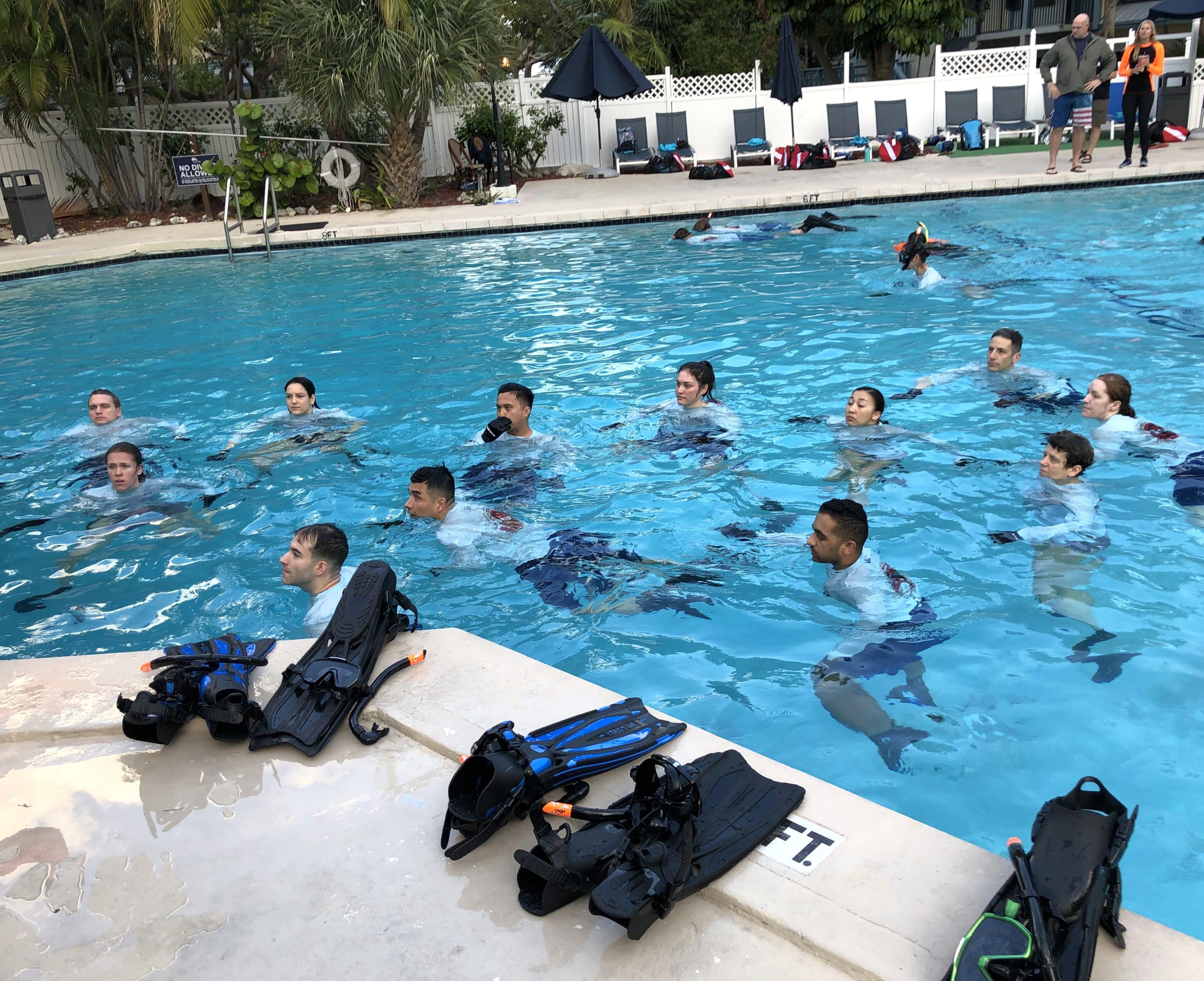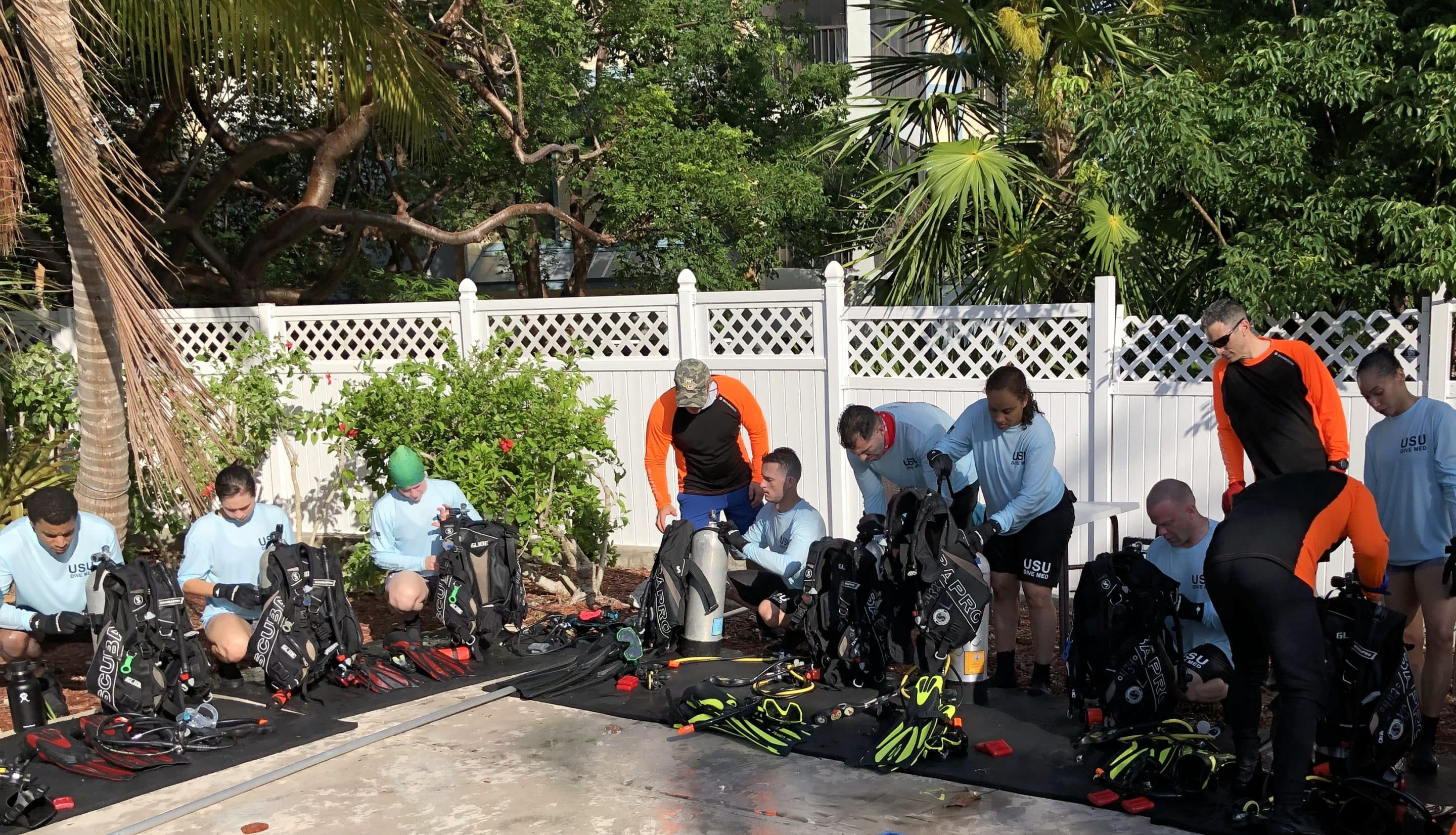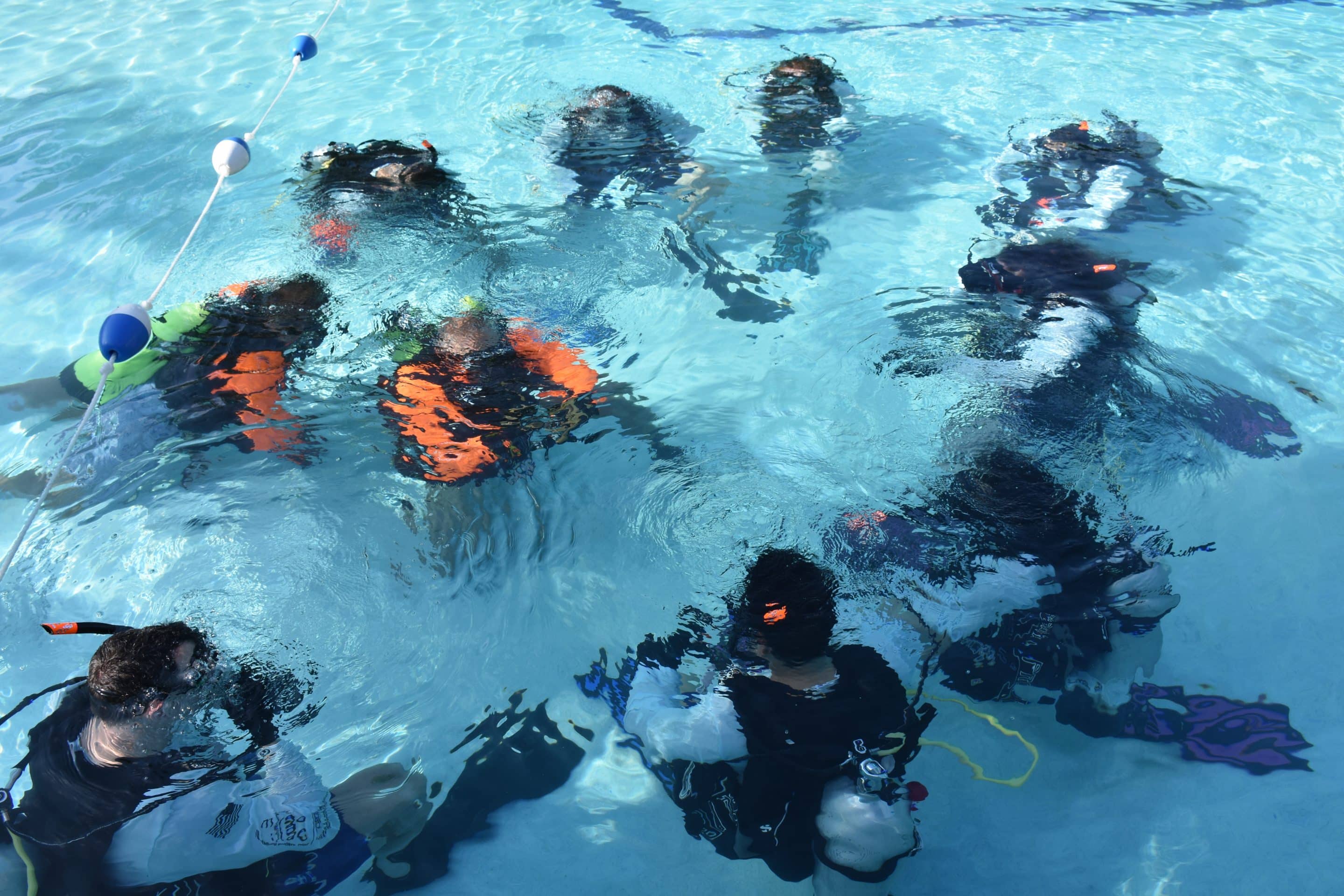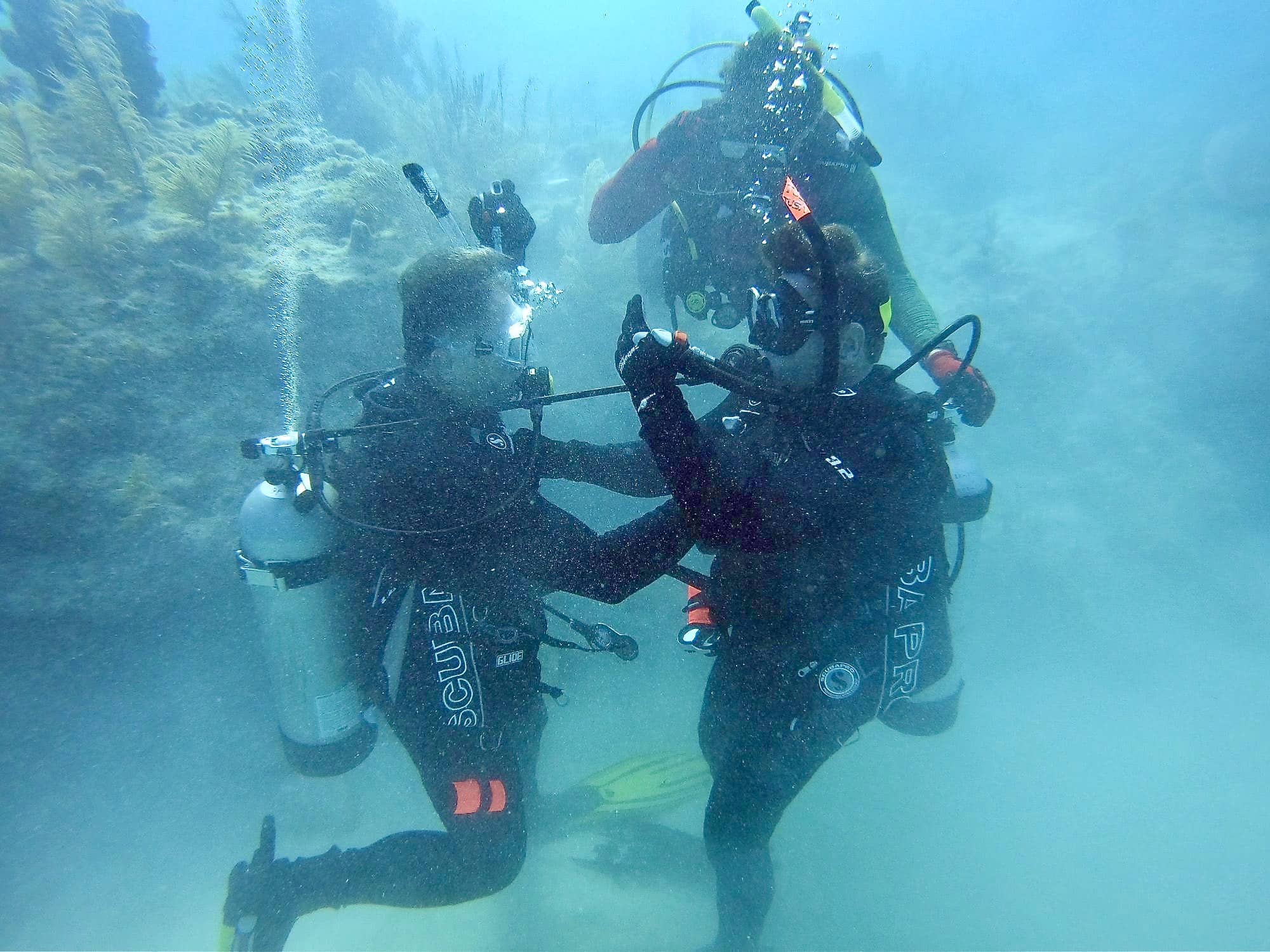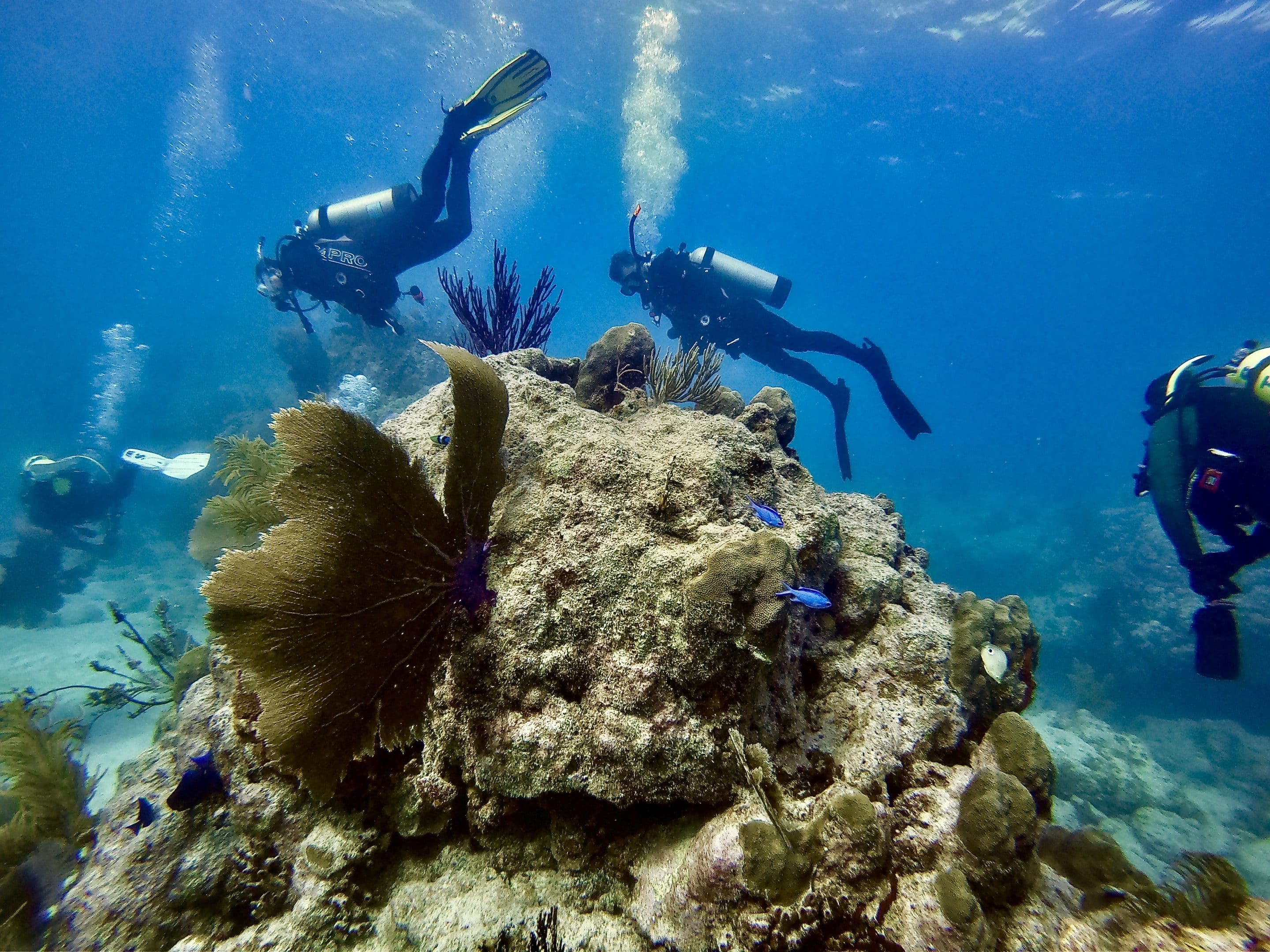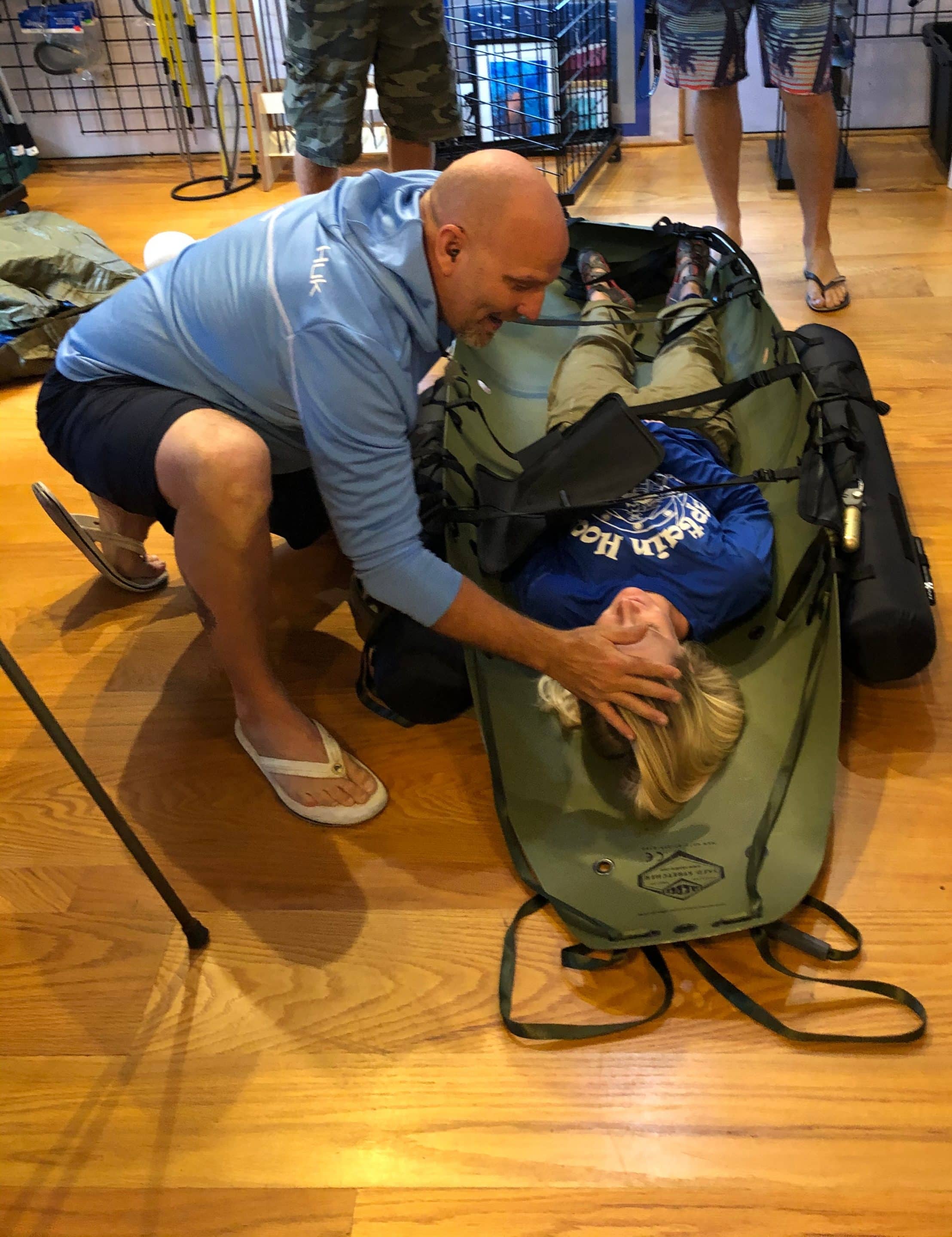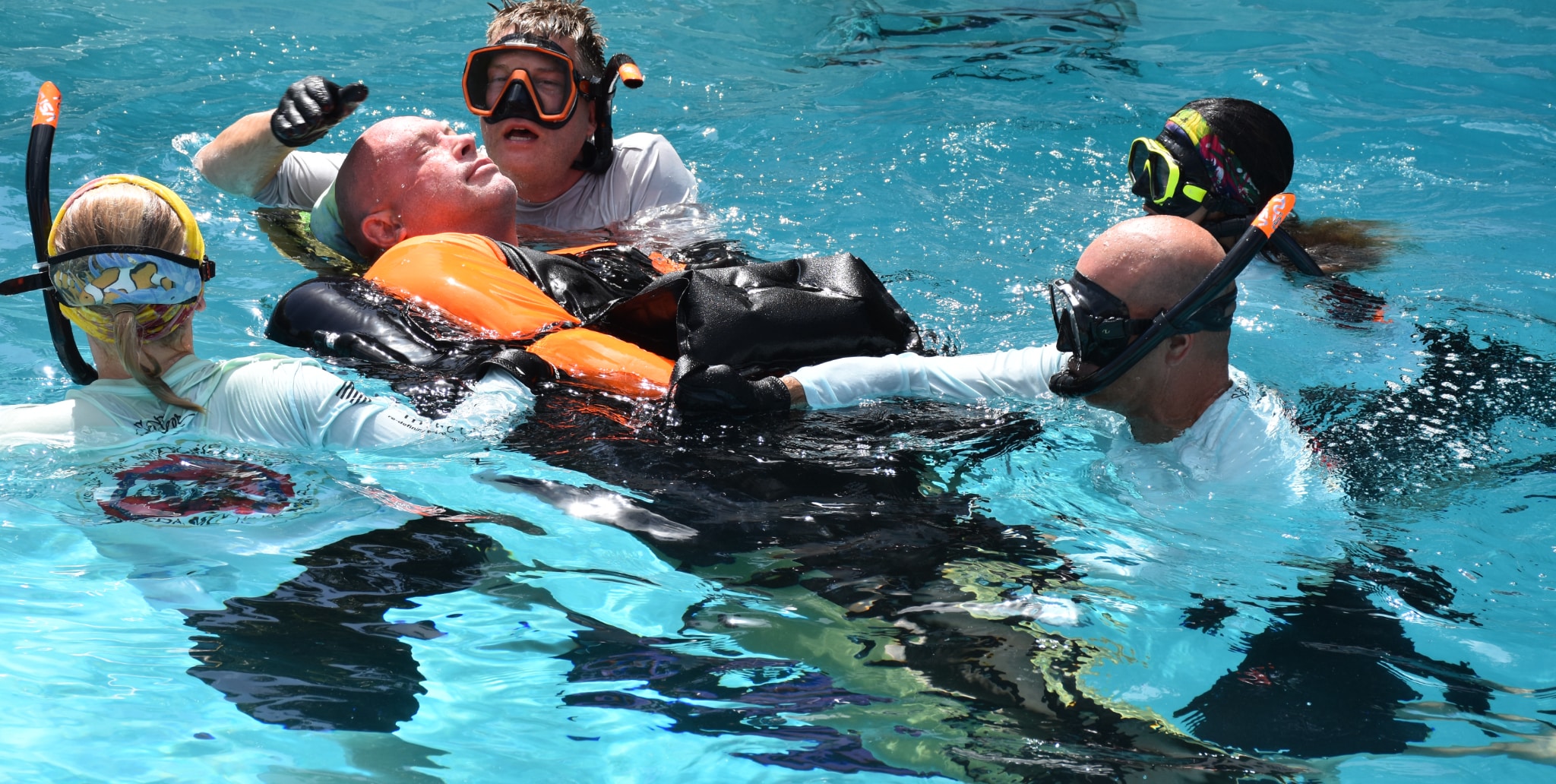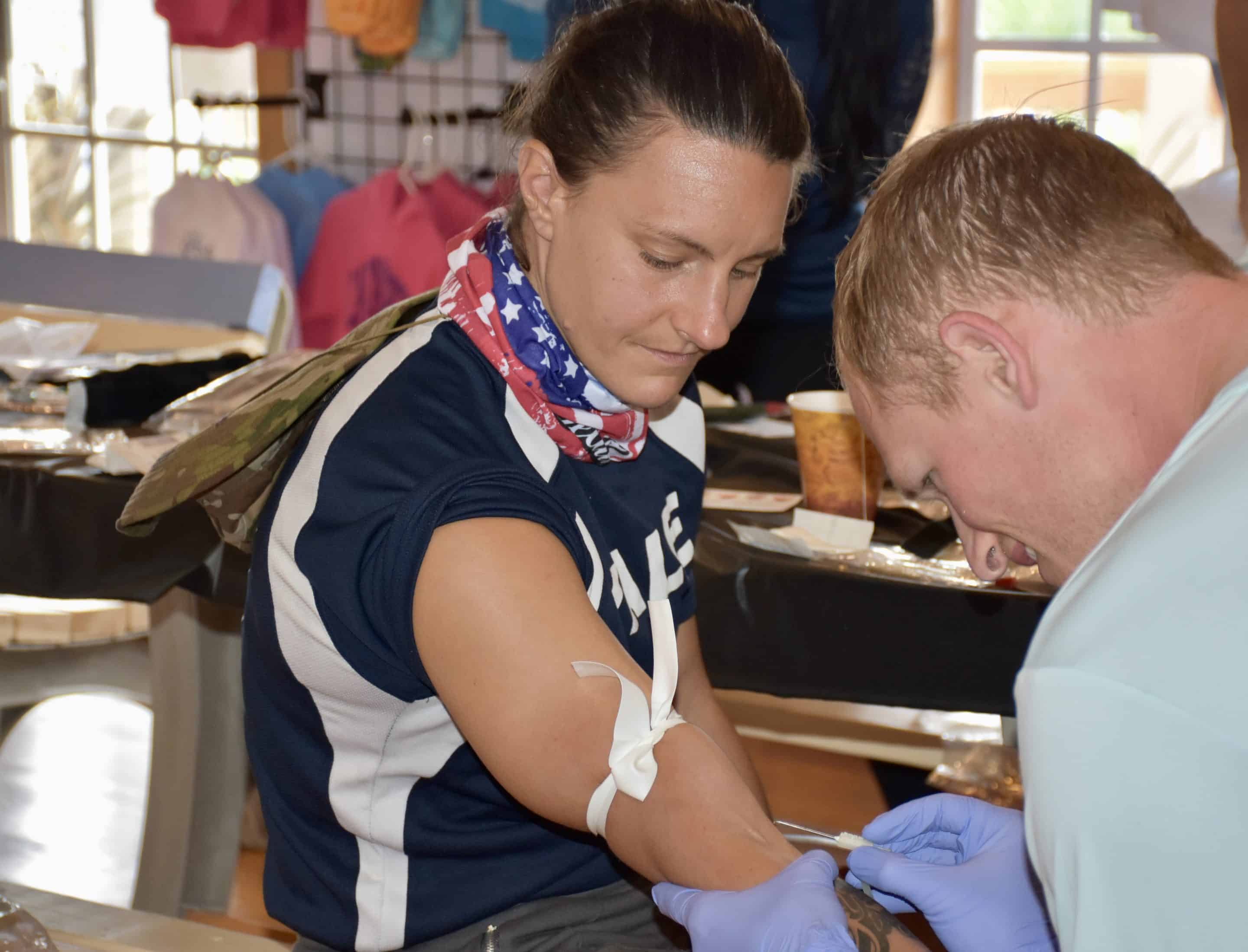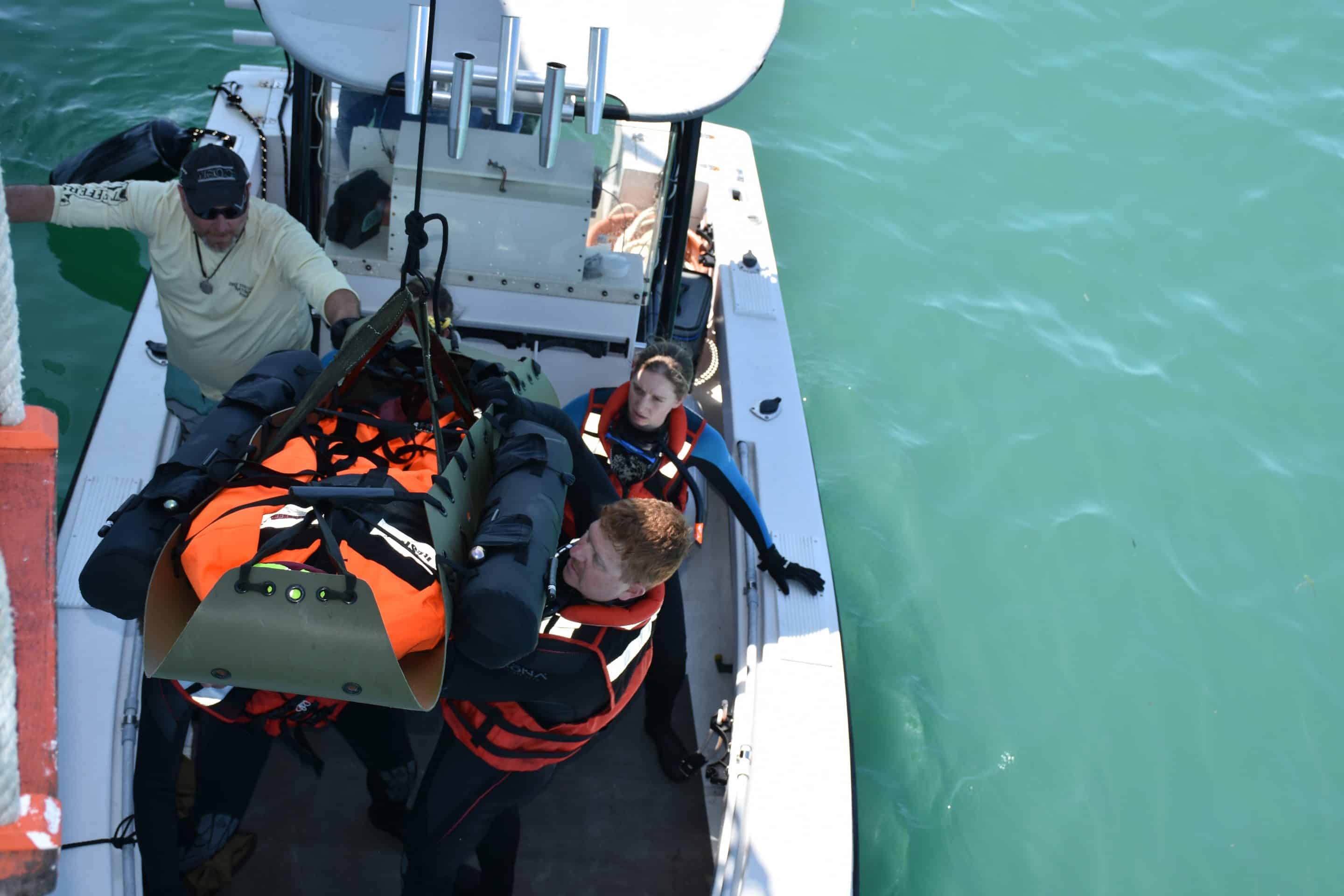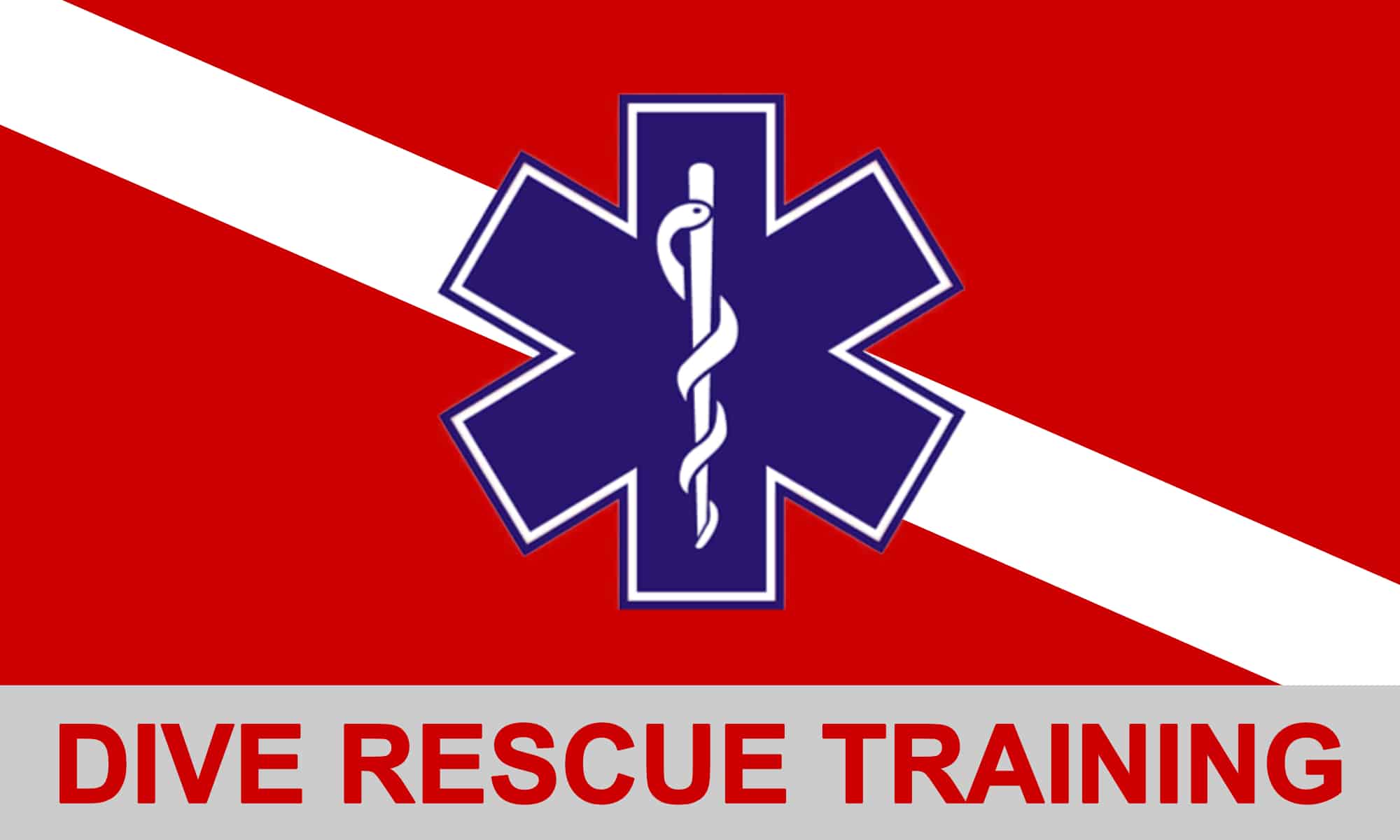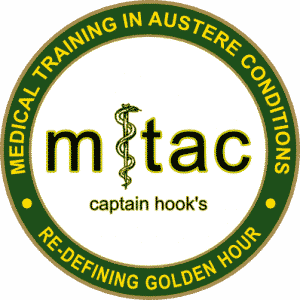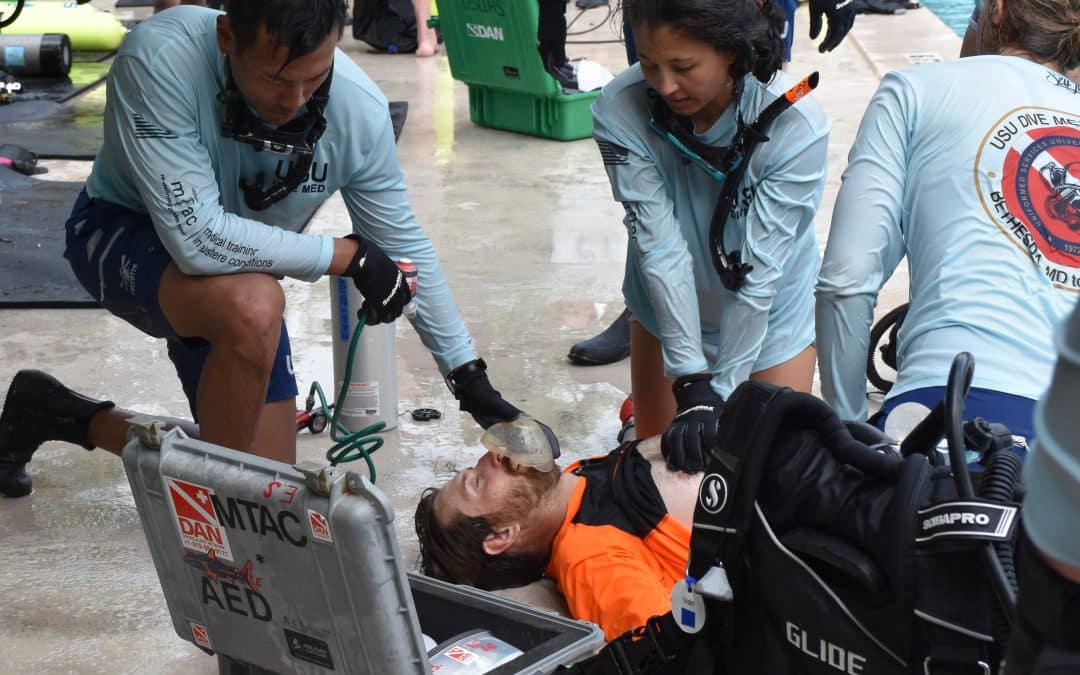This is a multi-faceted training program, and the speed in which this has to happen makes the training program a make-or-break situation. There are many safety checkpoints along the way; as you can’t bluff your way through advancement skills in the water or the diagnose and care for a patient in an austere environment.
Prior to arrival, all students complete online learning for diving and once around the world in dive medicine. Upon arrival, we begin the basics of diving, not always easy, but buoyancy control, the relationship between pressure and volume and, significantly, key control and safety skills such as equalization, mask clearing and regulator recovery after a swim test and observation by the course leadership. Although routine for the staff, this is the beginning of developing the mind in acute stress.
Then, it’s onto more advanced conditions, honing their skills that they have already learned and adding additional skills that include understanding deeper dives and the pressure issues associated with those dives and navigation challenges, low visibility, low light and night dives, and the visual challenges that come with those dives. Medical skills are integrated throughout all of the course including basics to advanced and in a spectacular culmination dive medical and maritime exercise.
Mastering those core skills is quite something, and dive planning for themselves also gets mastered along the way. Not that this isn’t a significant achievement in itself, but the real meat of our program is based on how the student considers the care and well-being of others in this austere environment. So, onto rescue dive training. All of the standard rescue procedures, protocols and procedures are taught and practiced.
Dr. Welder described the differences between standard dive industry rescue and the MTAC rescue training like this:
“What really makes us different is this: We teach how to do all the methods of standard dive rescue, but rescue in the industry stops once the casualty is on the boat- meaning dive shop protocols are get victim out of water, if conscious, place on O2, if unconscious, start CPR, call the coast guard, 911, move them to shore as quickly as possible, etc. Well, that is the problem… we teach you how to get them out of the water, why positioning is important, how to conduct basic assessment, physical and neuro exams, initiate appropriate interventions based on algorithmic differentials and optimize opportunity for the patient to live by starting treatment while still on boat. We rescue with the principles of “blood goes round and round”, “air goes in and out”, and “keep the patient horizontal and warm.”
The rescue portion of the course teaches an advanced mindset. No longer are you stressed about yourself, your equipment and your environment, you can focus on the situation, the rescue, the treatment, the transport, the plan, the ………. You are becoming one with the role and your role is to save lives.
With this mindset, it has changed things for us as a dive operator as well. We have taken a vested interest in our staff and their medical training. We provide quarterly updates and ensure that they understand and are current and competent with the equipment and knowledge. We are looking at our boats differently and rearranging the layouts so we have areas we can treat patients in a horizontal platform. Our boats now all carry Skedco® Sked Rescue systems that allow us to lift a patient from the water without causing additional injury and getting the patient on a horizontal plane in the least amount of time. This is just one of the many examples of how MTAC has made us a more capable dive operator. MTAC is “Redefining Golden Hour”, and Capt. Hook’s is redefining safety for dive operators.
